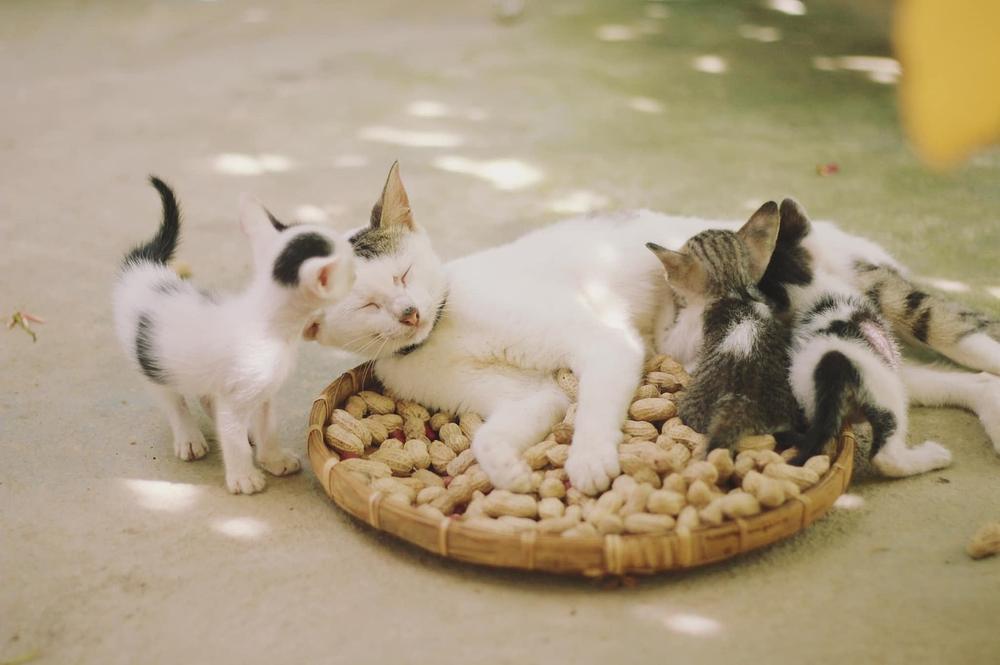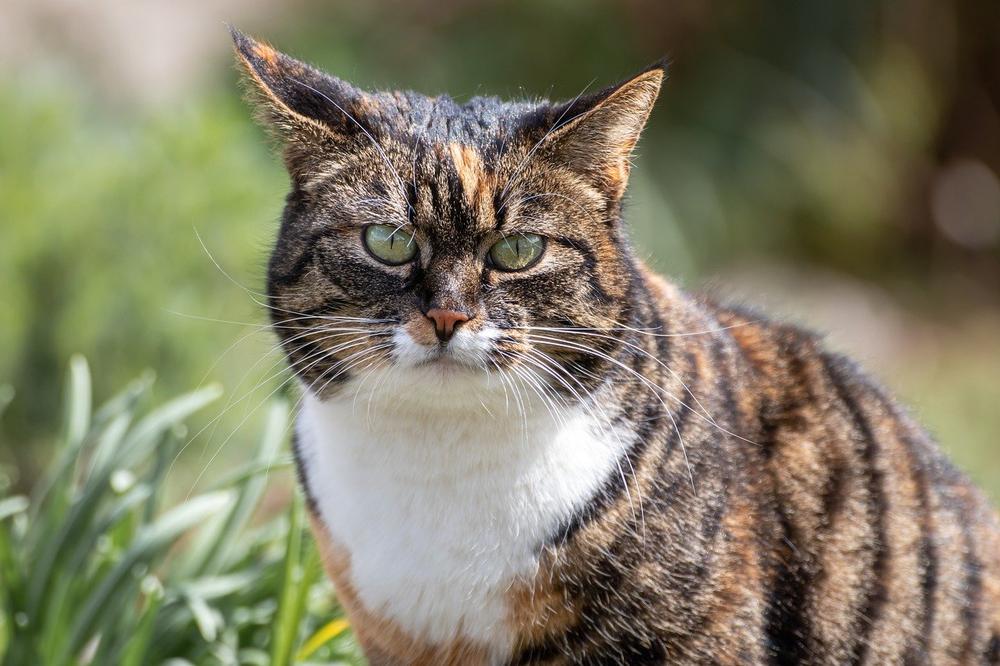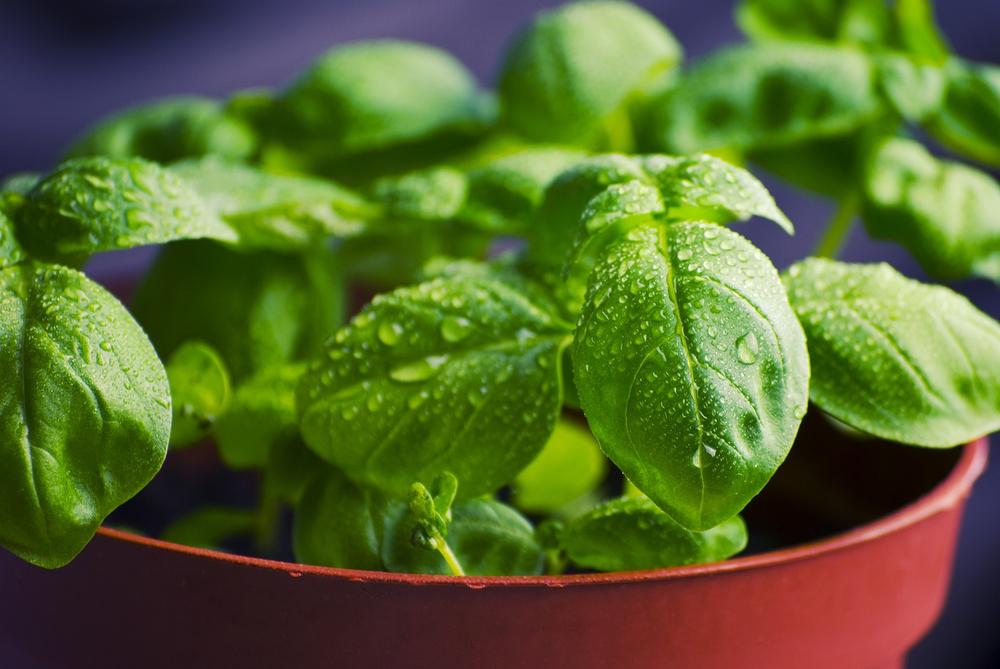Can Cats Eat Spicy Food? (Is It TOXIC or SAFE for Them?)

Just imagine:
You're about to indulge in a delicious, mouth-watering plate of spicy food. 😋
But just as you reach for that fiery goodness, a thought crosses your mind.
Could this pose a danger to your furry feline friend?
Don't panic, my concerned cat-loving compadres.
Let's find out together.
The Effects of Spicy Food on Cats
So, you're into spicy food and cats?
Well, here's the thing:
It's not a good mix. Spicy food can actually be harmful to your feline companion. It can cause inflammation and discomfort in their sensitive digestive system, leading to serious digestive issues.
While it might seem like a good idea to let your curious kitty have a taste of your spicy dish, think again.
Certain spices like cinnamon, nutmeg, cloves, allspice, and capsaicin can have negative effects on cats.
Capsaicin, which is found in cayenne pepper and other spicy treats, can irritate your cat's mouth, skin, throat, and stomach lining.
Just imagine how unpleasant that would be - watery eyes, burning sensations, and irritation are definitely not something your cat wants to experience.
And if that wasn't enough to convince you, spicy foods can also contain toxic compounds like n-propyl disulfide.

Onions, garlic, chives, and certain spices are off-limits for cats as they can cause anemia, resulting in symptoms such as a weak heart rate, panting, and wheezing. Even small amounts of herbs in spicy foods can cause stomach upset and mouth irritation for your furry friend.
Trust me, it's not a pretty sight.
The truth is, feeding spicy food to cats won't do any good for their all in all health, so you must be extremely cautious when even considering giving them a tiny taste. Your safest option is to stick with a diet specifically formulated for cats.
Luckily, there are plenty of delicious cat food options available that won't send your furry buddy running to the litter box or feeling uncomfortable.
So, go ahead and indulge in spicy food yourself, but keep your cat happy and healthy with food tailored just for them.
Believe me, it's the purr-fect choice.
Main points I'll expand upon further down this article:
- Cats are unable to taste spicy flavors like humans can.
- Cats are drawn to spicy food due to the ingredients used and meat aroma.
- Spicy food can cause digestion issues and irritation for cats.
- Different substances in spicy food can have varying effects on cats.
- Cats recognize spicy food through its unappealing aroma.
- Chinese tree shrews are the only animals besides humans that enjoy chili.
- If cats eat spicy food, they may experience symptoms like nausea and vomiting.
- Nutmeg can cause abdominal cramps and elevated heart rate in cats.
- Determine the ingredients in spicy food and if they are toxic for cats.
- Feeding cats their own food is recommended, avoiding sharing spicy food with them.
Now that you know the harmful effects of spicy food on cats, you may be wondering if they can even taste it in the first place.
Well, here's the fascinating part...
Despite their heightened sensitivity to capsaicin, cats are actually not able to taste the spices like we humans do. But why are they still drawn to spicy food?
Keep reading, because the reasons behind their curious behavior may surprise you...
Cat's Sensitivity to Spicy Food
Cats and spicy food - not a great combo!
Here's why cats are sensitive to spicy food:
- Capsaicin, the compound that makes peppers spicy, can cause gastrointestinal distress in cats due to their higher sensitivity.
- Cats may be drawn to spicy food because of the ingredients used, like meat, and the strong aroma it has.
- Spicy food can lead to digestive issues and irritation for cats, who have trouble digesting certain substances found in spicy food.
- Different spices affect cats differently, so it's important for pet owners to know which ones are safe and which they should avoid giving to their furry friends.
- While cats may be attracted to spicy food, they mainly rely on their sense of smell to identify it, rather than actually enjoying the taste of spices themselves.
- Unlike humans and Chinese tree shrews, cats don't appreciate the complex flavors of spicy food; they're more interested in the meat-based nature of it.
When it comes to cats and spicy food, it's best to play it safe and keep them away from the heat! 😺

But what happens if your curious feline manages to get a taste of spicy food?
The consequences can be concerning, with symptoms ranging from excessive salivation and digestive issues.
However, there are certain spices that can pose even greater risks to your beloved pet.
So, let's delve deeper into the potential dangers awaiting adventurous cats.
Symptoms of Spicy Food Toxicity in Cats
Excessive drooling and other symptoms to keep an eye out for
You might think spicy food is only a problem for people, but guess what?
Cats can suffer too.
If your precious furball eats something spicy, they may start feeling pretty miserable.
Feeling sick, throwing up, and more
Spices not only make our food taste better, but they can also wreak havoc on your cat's tummy.
Spicy food can lead to feeling nauseous, vomiting, and that dreaded issue we all try to avoid:
Diarrhea.
And trust me, nobody wants to clean up after that mess!
But get this:
Some spices, like nutmeg, can take it even further.
Your poor feline might end up with tummy cramps, seeing things (yep, you read that right!), or even a faster heartbeat.

I know, it sounds downright terrifying!
Figuring out harmful ingredients and seeking help
Let's get serious for a moment, shall we?
It's super important that you figure out exactly what's in the spicy food your cat got their paws on.
Are any of these ingredients dangerous for your beloved furry friend?
If you're unsure or if the food contains harmful stuff, playing it safe and taking your cat to the vet right away is always the best choice.
Don't wait for signs of sickness to show up - prevention is key!
Because eating spicy food can lead to cats throwing up, stomach pain, and having diarrhea, there's also a risk of them becoming dehydrated. So, making sure your kitty stays hydrated should always be a top priority when dealing with spicy food mishaps.
To keep your beloved feline friend safe from the dangers of spicy food, it's crucial to educate yourself on their dietary needs.
If you're curious about whether cats can safely consume garlic, I highly recommend checking out my article Can Cats Eat Garlic.
In it, you'll find all the information you need to make informed decisions regarding your cat's diet and discover what foods are beneficial or potentially harmful.
Preventing Cats from Consuming Spicy Food
Spicy foods should be stored securely to prevent curious cats from accidentally consuming them. You should also avoid sharing spicy food with your cat and instead serve them their own designated meals. Feeding raw meat, fish, or eggs to cats is not recommended due to the potential for harmful bacteria.
Cats can easily be tempted by leftovers, plates, and takeout containers that contain spicy food.
Specific foods like onion, garlic, pepperoni, jalapenos, and red kidney beans should be strictly avoided when it comes to feeding cats.
Nutmeg can also cause various issues for feline friends. Lastly, you need to refrain from adding hot sauce to a cat's meal to ensure their all in all well-being.
And if you're ever wondering about the safety of teriyaki chicken for your feline friend, you're in luck! In my blog post, I've covered everything you need to know.
Simply head over to Can Cats Eat Teriyaki Chicken for all the details.
Alternatives to Spicy Food for Cats
When it comes to keeping your feline friend safe from fiery flavors, here are 8 options for you:
- You can give them herbs that they'll love, like catnip, dill, valerian, and basil.
- Make sure their diet is well-balanced by feeding them high-quality commercial cat food.
- If you want to treat them with something protein-packed, cooked meat is the way to go.
- Consider indulging their taste buds with canned or cooked fish - it's a delicious choice!
- For some extra carbs, offer them cooked grains so they can feel satisfied.
- Every now and then, give them certain fruits as an occasional special treat.
- Keep their main meals consistent by sticking to a commercial cat food that they enjoy.
- Lastly, boost their overall health by sprinkling in small amounts of specific herbs.
You have to ensure your cat is getting the nutrients they need while still providing them with tasty alternatives to spicy food.

That way, everyone will be happy - especially your beloved kitty!
And that wraps up today's article.
If you wish to read more of my useful articles, I recommend you check out some of these: Can Cats Drink Tea, Can Cats Eat Pizza, Can Cats Eat Doritos, Can Cats Drink Coffee, and Can Cats Eat Cereal
Talk soon,
-Sarah Davis